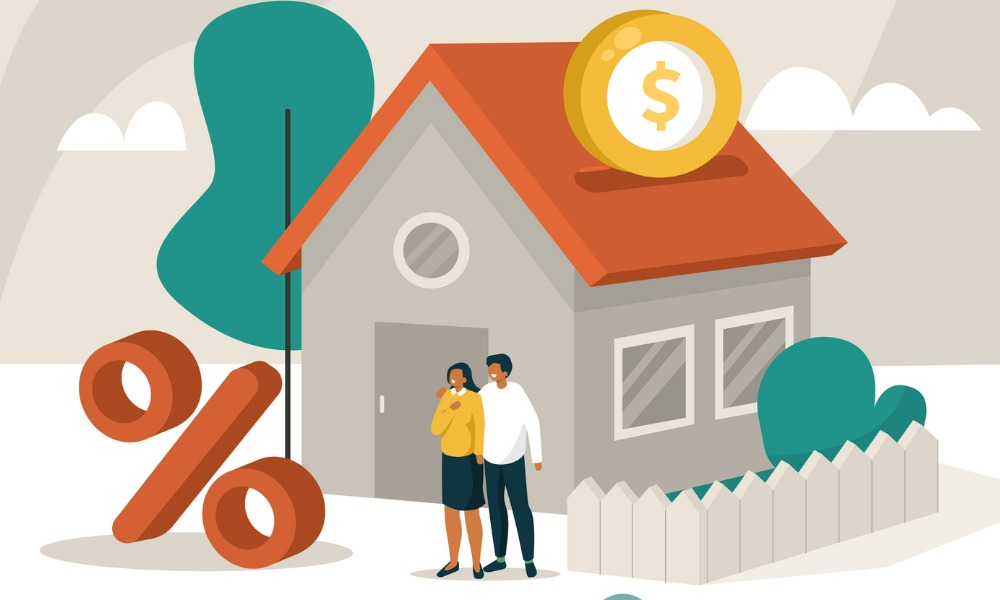Housing affordability saw its most serious decline in decades

On average, Canadian households would need at least five years of savings to begin buying a home in a metropolitan market during the second quarter, according to a new analysis by National Bank of Canada.
Canadian housing affordability saw “the sharpest deterioration since Q2 1994,” NBC said in the latest edition of its Housing Affordability Monitor. “Mortgage payments now engulf 45% of income for a representative household, above the average since 1980 (43%).”
“Income growth and lower interest rates were conducive to improving affordability for most of the past two years,” the bank added. “That is no longer the case in 2021, as income growth is being easily outpaced by home price increases, while mortgage interest rates also rose on a quarterly basis.”
For instance, taking into account a savings rate of 10%, prospective home buyers would have to save for approximately 56 months to afford the down payment for a Toronto condo unit (at the average price of $652,308).
Single-detached homes in the area (with an average price of roughly $1.147 million) are even more out of reach for most Canadians, as they would need to save for at least 318 months just to make the down payment.
Read more: Are first-time homebuyers being unfairly targeted?
Nationally, average home prices increased by 5.9% quarterly and 14.8% annually in Q2, both the strongest paces for these metrics since 1989.
“To give some scale to these numbers, the median home price in Canada increased $38,000 in the quarter and $89,000 from a year ago,” NBC stated.
“Rising prices have increased the burden of accumulating the minimum down payment,” the bank added. “For the representative dwelling in Canada, it would take 69 months at a 10% savings rate for the median pre-tax household income, compared to 57 months at this time last year.”



